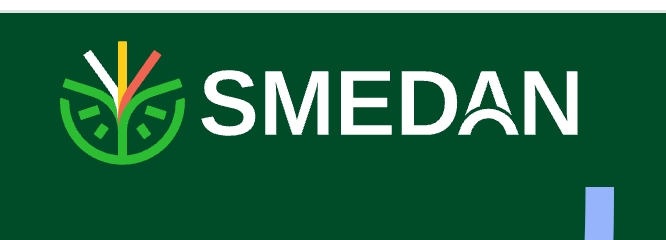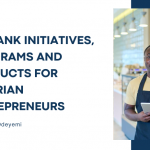Small businesses in Nigeria are receiving unprecedented support, thanks to the determined efforts of the Small and Medium Enterprises Development Agency of Nigeria (SMEDAN). The agency has been actively rolling out initiatives aimed at ensuring Micro, Small, and Medium Enterprises (MSMEs) not only survive but thrive in today’s economic landscape.
SMEDAN’s Director General revealed that a strategic partnership with Sterling Bank has unlocked a N5 billion loan fund for small businesses. However, only 5 percent of the fund—just N250 million—has been disbursed so far. The agency attributes this slow uptake to a lack of capacity and inadequate documentation among many MSMEs, which disqualifies them from accessing the funds.
To address this gap, SMEDAN has launched an MSMEs data bank to better profile small businesses and help them access financial support. Businesses are required to register to enable the agency to track their growth and build credibility, making future disbursements more efficient and accountable.
The agency emphasized that the Sterling Bank funding is a loan—not a grant—and must be repaid. SMEDAN expects more businesses to qualify and tap into the fund by the end of April 2025, once they meet the necessary requirements.
Beyond its collaboration with Sterling Bank, SMEDAN has signed agreements with state governments and the Bank of Industry to widen the reach of its financial interventions. Recognizing that many businesses lack formal records, the agency is also increasing training efforts through its business clinics. These clinics aim to build the financial literacy and administrative capacity of entrepreneurs, making it easier for them to access available funds.
In the first quarter of 2025 alone, SMEDAN created over 90,160 new jobs through targeted empowerment initiatives and partnerships. More than 116,000 entrepreneurs have benefited from resources such as training, finance, and market access.
The agency has teamed up with major private sector partners like Google and Wema Bank to provide thousands of entrepreneurs with digital and financial literacy skills. It has also facilitated the registration of small businesses with the Corporate Affairs Commission (CAC), helping them formalize their operations, qualify for funding, and gain access to broader supply chains.
Highlighting the agency’s ongoing challenges, the Director General expressed concern that many MSMEs are still unable to access available loans. He noted that while funds ranging from N250,000 to N10 million are available, only businesses with proper records and capacity are currently eligible. The government is now focusing on businesses that can meet these conditions to maximize the impact of the N5 billion facility.
One of the standout initiatives is SMEDAN’s Garment and Textile Hub at the Industrial Development Centre in Idu, Abuja. Created in partnership with the UNDP, this hub offers affordable access to industrial machines, solar-powered electricity, and a safe working environment for fashion entrepreneurs. It has become a model for inclusive industrial growth and local value creation.
To support business expansion across sectors, SMEDAN distributed over 123,000 essential work tools during Q1 2025. These included SUVs, mini buses, laptops, sewing machines, tricycles, generators, and more—reaching all 36 states of the federation.
According to the Director General, these interventions are part of SMEDAN’s broader “GROW Nigerian” strategy, which focuses on Guidance, Resources, Opportunities, and Workforce development. The goal is to help small businesses scale, transition into the formal economy, and increase their competitiveness in both local and international markets.
He added that the agency has secured new partnerships expected to deliver more results in Q2. These efforts aim to expand SME access to finance, unlock critical value chains, and boost Nigerian products’ competitiveness globally.
Reaffirming its alignment with President Bola Ahmed Tinubu’s Renewed Hope agenda, SMEDAN declared its continued commitment to building a structure that empowers Nigerian businesses to drive inclusive and sustainable economic growth. Looking ahead, the agency plans to expand sector-specific hubs, deepen outreach, and create more opportunities for Nigeria’s growing entrepreneurial class.










